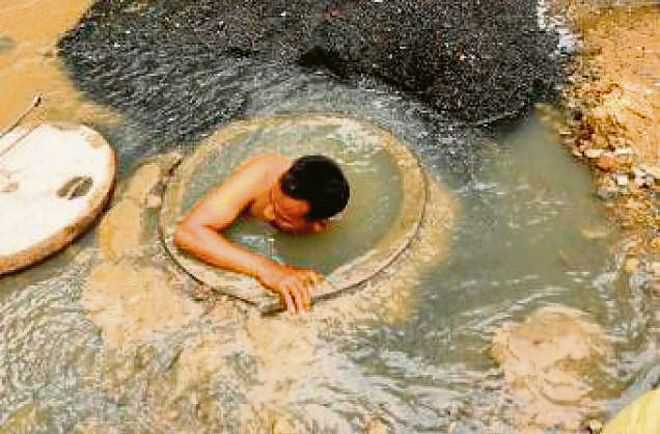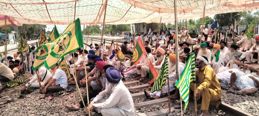
Although over 70 years have passed since the Independence, caste discrimination still persists in the country, the apex court said.
New Delhi, September 18
Expressing serious concern over people dying during manual scavenging and sewage cleaning in India, the Supreme Court Wednesday said nowhere in the world people are sent to "gas chambers to die".
Although over 70 years have passed since the Independence, caste discrimination still persists in the country, the apex court said while making scathing observations on the practice.
A bench headed by Justice Arun Mishra questioned Attorney General K K Venugopal, appearing for the Centre, as to why proper protective gear like mask and oxygen cylinders were not being provided to people engaged in manual scavenging and cleaning of sewage or manholes.
"Why are you not providing them masks and oxygen cylinders? In no country in the world, people are sent to gas chambers to die. Four to five people are dying due to this every month," said the bench also comprising justices M R Shah and B R Gavai.
The Constitution has provided that all human beings are equal but they are not being given equal facilities by the authorities, it said.
The bench termed as "inhuman" the situation where the people are not provided with any protective gear and they are dying during the process of cleaning of sewage and manholes across the country.
The apex court made these hard-hitting observations while it was hearing the Centre's plea seeking review of its last year's verdict which had virtually diluted the provisions of arrest under the SC/ST Act.
Venugopal told the bench that no law of tort, which deals with civil wrong and its liabilities thereof, is developed in the country and the magistrates are not empowered to take cognisance on their own of such incidents.
A case can't be filed against the person who is sweeping the street or cleaning the manholes but the supervisory officers or the authorities, on whose instruction the work is carried out, should be held liable for this, he said.
"This is most inhuman to treat the human beings like this," the bench observed.
The bench also made observations on the aspect of untouchability in the country.
"Despite the constitution abolishing untouchability in the country, I am asking you people, do you shake hands with them? The answer is no. That is the way we are going on. The condition must improve. We have moved 70 years since Independence but these things are still happening," Justice Mishra said. —PTI



























